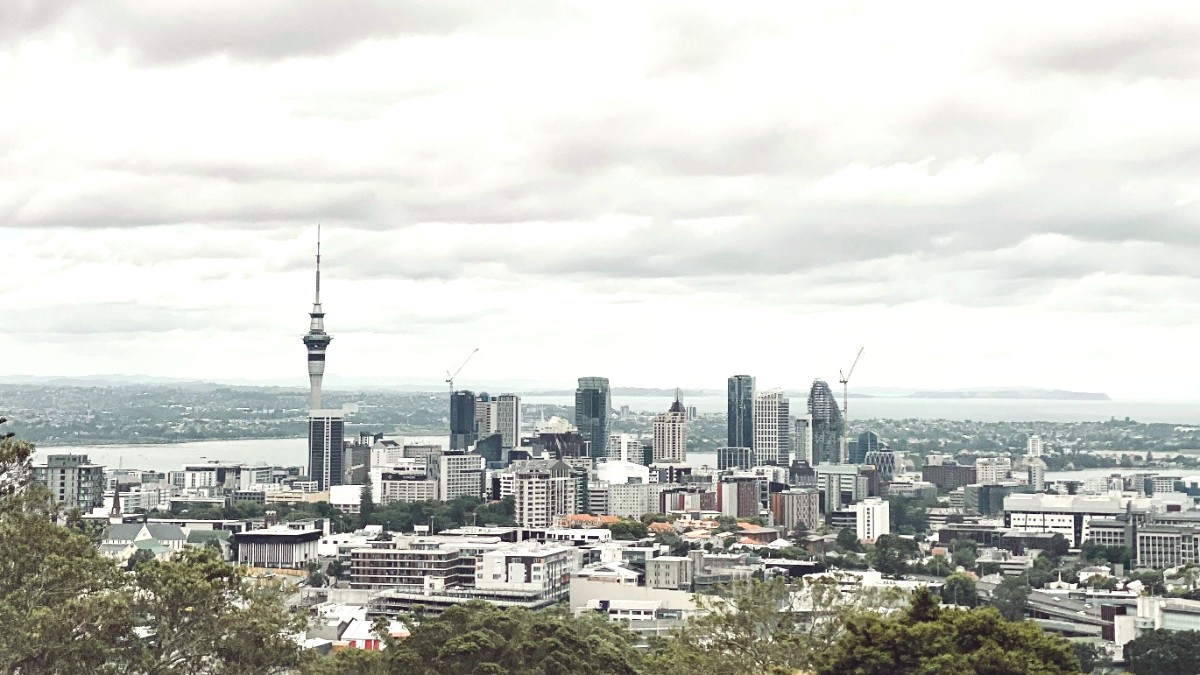
New Zealand
Summer (December to February) brings Auckland's warmest months, with daily temperatures typically ranging from 20°C to 25°C (68°F to 77°F). Humidity levels are moderate, and while showers appear, they are generally short and heavy, quickly giving way to sunshine. This period is excellent for beach activities and outdoor festivals.
Autumn (March to May) presents milder temperatures, usually between 16°C and 20°C (61°F to 68°F). Rainfall happens less often than in winter, and you can expect stable, sunny periods. The city’s parks and gardens display beautiful autumn colors, making this a pleasant time for walking and sightseeing.
Low Season (June to August) brings the lowest prices for flights and accommodation. Attractions find far less crowding, allowing for a more relaxed experience. The landscapes stay lush and green, and opportunities for whale watching often appear.
The weather can be unpredictable, especially during spring, with sudden showers possible. Some seasonal activities might not yet be fully operational or have limited schedules.
Auckland does not experience monsoons or hurricanes.
Weather changes quickly, so pack layers. A sunny morning may turn into a showery afternoon.
New Zealand has an exceptionally high UV index; apply high SPF sunscreen frequently.
Matching your visit to desired activities.
December to February offers the best conditions for water-based activities.
March to May (autumn) and September to November (spring) provide ideal temperatures.
Stay informed about local weather.
Check the local weather forecast from MetService NZ a few days before departure for accuracy.
A Waterproof jacket brings usefulness year-round due to sudden showers.
Requirements vary based on nationality and visit purpose. New Zealand holds strict biosecurity regulations, so declaring all relevant items upon entry is important. Visa-waiver countries (US, Canada, most EU) require a New Zealand Electronic Travel Authority (NZeTA). Other nationalities need a Visitor Visa through Immigration New Zealand's website or VisaHQ. Confirm transit visa needs for layovers.
A passport valid for three months beyond departure, NZeTA or valid visa copy, proof of onward/return travel, and proof of sufficient funds (NZD $1,000/month or $400/month if accommodation prepaid) are all important. Complete the New Zealand Traveller Declaration (NZTD) online within 24 hours of arrival. Be truthful and thorough. A Waterproof jacket is always a smart choice.
International Visitor Conservation and Tourism Levy (IVL) of NZD $35 alongside NZeTA.
Upon arrival, answer questions regarding travel purpose and plans. Biometric data may be collected.
Declare all food, plant, animal products, and outdoor equipment like Hiking boots or Camping gear. Fines apply for non-declaration.
No specific health entry requirements as of early 2024. Travelers should be in good health.
Check Immigration New Zealand (Www.immigration.govt.nz) for current policies.
Auckland’s climate can be unpredictable, often bringing "four seasons in one day." Packing adaptable layers is the most effective strategy for comfort, regardless of the season.
Summer (Dec-Feb) means lightweight clothing like shorts, t-shirts, dresses, and Swimwear. Bring a Light jacket for cooler evenings. Autumn (Mar-May) and Spring (Sep-Nov) call for Long-sleeved shirts, sweaters, and a waterproof/windproof outer layer. Winter (Jun-Aug) needs warmth: Base layers, warm sweaters, and a waterproof jacket. Jeans or warm trousers are suitable.
Auckland is a cosmopolitan city, and its dress code for tourists is generally casual and relaxed. No specific cultural dress code adherence exists in most public places. Comfortable everyday clothing receives wide acceptance.
Consider New Zealand's specific power requirements and plan your mobile connectivity for a smooth digital experience.
Keeping your travel documents organized and accessible smooths your journey. Have both physical and digital copies of your paperwork.
Carry your original passport (valid 3 months beyond departure) and a printed/digital copy of your NZeTA or visa. Ensure proof of onward/return travel and sufficient funds. Keep a printed policy document for your travel insurance, including emergency contacts. An International Driving Permit (IDP) or certified English translation is necessary if your license is not in English. Always carry your valid domestic driving license alongside your IDP.
Bring documentation for any prescription medications (doctor's letter detailing medication, dosage, medical necessity) for customs and refills. Store all medications in your carry-on.
A well-stocked personal health kit belongs in your luggage. No specific vaccinations are required for New Zealand entry. Consult your healthcare provider 4-6 weeks before your trip for personalized recommendations.
Routine vaccinations (MMR, DTP, Varicella) should be up-to-date. Hepatitis A and B, and Tetanus often find suggestion.
Altitude sickness is not a concern; Auckland is at sea level.
Auckland maintains general safety. Petty crime like pickpocketing happens in crowded tourist spots (Queen Street, Viaduct Harbour) and on public transport. Always watch your belongings, especially in busy areas.
Central Business District (CBD) crime appears more at night; common sense applies as in any major city.
Bushfire risk appears high in dry summers. Observe fire bans and track closures.
Auckland hosts several public and private hospitals (Auckland City Hospital, MercyAscot). Numerous GP clinics exist. Non-residents generally pay for consultations, so have your travel insurance details handy. Pharmacies find wide availability.
Tap water in Auckland is safe to drink unless indicated otherwise. Carry a Reusable water bottle.
Water purification methods are not necessary for tap water in Auckland.
| Coverage Area | Description | Recommendation |
|---|---|---|
| Medical Emergencies | Doctor visits, hospital stays, emergency evacuation. | Highly recommended for all travelers. |
| Trip Interruption/Cancellation | Covers non-refundable costs if trip cut short or canceled. | Valuable for protecting your investment. |
| Baggage Loss/Theft | Reimbursement for lost, stolen, or damaged luggage. | Good to have for peace of mind. |